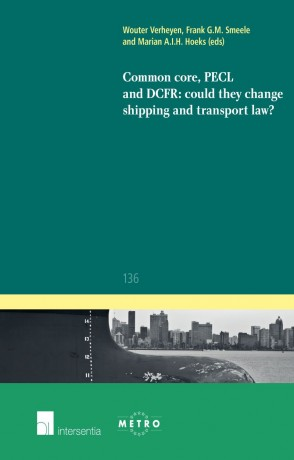
The international character of shipping and transport has always been a great incubator for harmonisation of law. Recently, there has been increasing interest within the EU in harmonisation of general private law, with different harmonisation instruments such as common core, PECL and DCFR coming into existence. Even though both shipping and transport law and the harmonisation instruments aim at further harmonisation of private law, the potential interplay between them has never been examined thoroughly in doctrine.
In this book the possible impact of these private law harmonisation instruments on shipping and transport law is assessed. First of all the book investigates whether harmonisation instruments can contribute to uniformity of shipping and transport law in fields where such uniformity is currently lacking. Secondly, it looks at whether the current harmonisation instruments or a future European private law could change (inter)national shipping and transport law.
This cross-fertilisation between shipping law and harmonisation instruments makes this book not only a valuable instrument for shipping lawyers, but also for anyone interested in harmonisation of private law.